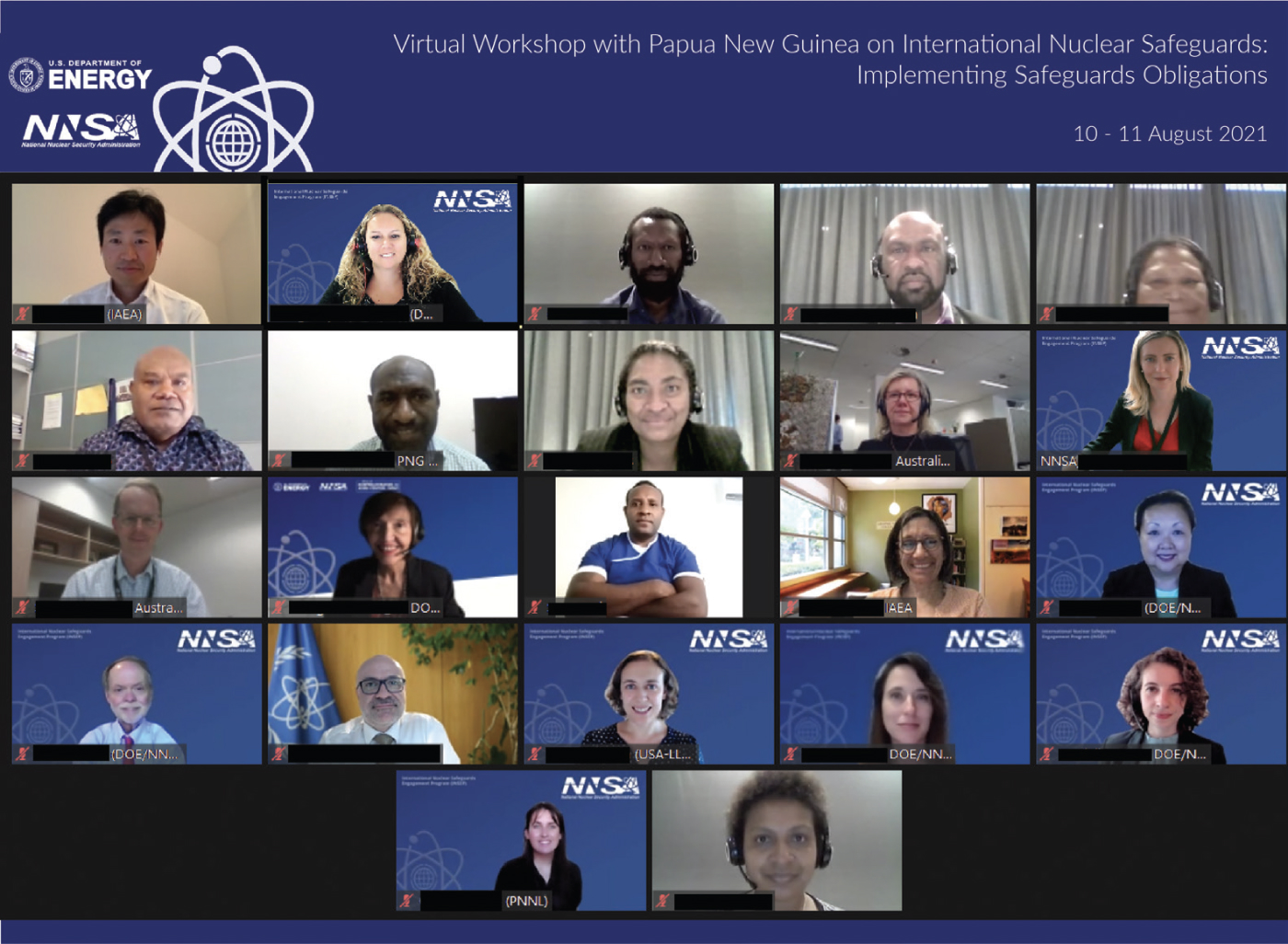Output 1.4: International Safeguards and Non-Proliferation
Contribution to the development and effective implementation of international safeguards and the nuclear non-proliferation regime.
Performance Measures
- Contribute to the strengthening of international safeguards in ways that advance Australia's interests.
- Contribute to policy development and diplomatic activity by the Department of Foreign Affairs and Trade (DFAT).
- Contribute to the IAEA's Standing Advisory Group on Safeguards Implementation (SAGSI).
- Manage the Australian Safeguards Support Program (ASSP).
- Cooperate with counterparts in other countries in the strengthening of international safeguards and improvement of domestic safeguards implementation.
- Provide advice and assistance to the Australian Intelligence Community in support of national and international non-proliferation efforts.
- Manage ASNO's international outreach program.
- Assess developments in nuclear technology.
Performance Assessment
Strengthening International Safeguards
ASNO continues its active role in international efforts in shaping and developing the effective implementation of nuclear safeguards, through engagement in a range of fora and projects. This includes working directly with the IAEA, as well as with other international bodies, notably through ASNO's membership of the APSN.
On broader aspects of safeguards implementation, ASNO's engagement included the IAEA Director General's Standing Advisory Group on Safeguards Implementation (SAGSI), technical meetings on IAEA safeguards projects, and various conferences and workshops. ASNO participated in the IAEA's biennial Member State Support Programme (MSSP) Coordinators' Meeting in March 2022 presenting on aspects of Australia's contributions to developing safeguards technology and approaches, delivering safeguards training, and providing technical services.
Australian Safeguards Support Program
The Australian Safeguards Support Program (ASSP) is one of 22 programs established by Member States and the European Commission to assist the IAEA in safeguards research, development and implementation. Australia has one of the longest-running programs, having been in place for over 40 years.
Under the ASSP, ASNO coordinates contributions from several Australian agencies including ANSTO, CSIRO, ONI, University of Sydney and University of Western Australia (UWA), to several ongoing projects as well as directly contributing its own expertise. During the year, ASNO contributed to the development of IAEA technical guidance documents, including the drafting of STR–396 'International Safeguards Guidelines for the Post-Operational Phases of Nuclear Facilities and Locations Outside Facilities', which the IAEA approved in August 2021.
ANSTO's Centre for Accelerator Science and UWA's Centre for Microscopy, Characterisation and Analysis continue to participate in the IAEA Department of Safeguards' Network of Analytical Laboratories (NWAL), providing analysis of IAEA environmental swipe samples. Following resolution of issues with sources of background in the Accelerator Mass Spectrometry system and successful analysis of re-validation samples in 2020–2021, ANSTO resumed bulk analysis of swipe samples from IAEA safeguards inspections in 2022. UWA uses its large-geometry secondary ion mass spectrometer (LG-SIMS) for uranium isotopic characterisation of particles in environmental samples from IAEA inspections. UWA is increasing its capacity to analyse IAEA samples from about 20 per year to as many as 40 to help meet growing demand for particle analysis.
ASNO is also supporting the IAEA's Comprehensive Capacity Building Initiative for SSACs21 and SRAs22 (COMPASS), the IAEA's new initiative to provide tailored safeguards assistance to Member States. Australia contributed to two webinars presenting on how Australia conducts safeguards outreach to LOFs and on Australia's nuclear material licensing system for the benefit of COMPASS pilot countries.
Cooperation with other States
The 2022 virtual meeting of APSN (held over from 2021) was attended by 70 participants from 20 countries, including observers from Papua New Guinea, Sri Lanka and United Arab Emirates, and representatives from the IAEA and ESARDA. Vietnam will pass the chair of the APSN to Thailand for 2023–24. Australia will continue as chair of the APSN Steering Committee in 2022, followed by Japan in 2023.
ASNO presented on 'Nuclear and Non-nuclear uses of nuclear material' at a virtual workshop for Papua New Guinea on International Nuclear Safeguards: Implementing Safeguards Obligations held on 10–11 August 2021, hosted by the United States Department of Energy.

ASNO officers participating at virtual workshop with Papua New Guinea on International Nuclear Safeguards: Implementing Safeguards Obligations, 10–11 August 2021 hosted by the US DOE. (Image courtesy of DOE/NNSA INSEP)
IAEA Standing Advisory Group on Safeguards Implementation
The IAEA Director General's Standing Advisory Group on Safeguards Implementation (SAGSI) provides recommendations to the IAEA Director General on vital safeguards implementation issues. The Group currently comprises 17 international experts from 17 Member States. The members serve on the group in a personal capacity (rather than as representatives of their government or organisation). Each expert is invited to serve a three-year term, with the possibility of renewal. Dr Stephan Bayer, Director IAEA Safeguards Section, ASNO, has been appointed to serve as a member of SAGSI until the end of 2024. During the reporting period SAGSI has been examining 30 years of strengthening safeguards with a view to formulating recommendations for the further strengthening of safeguards in the future.
21 The system of accounting for and control of nuclear material used by a state or regional authority.
22 The state or regional authority responsible for safeguards implementation.

